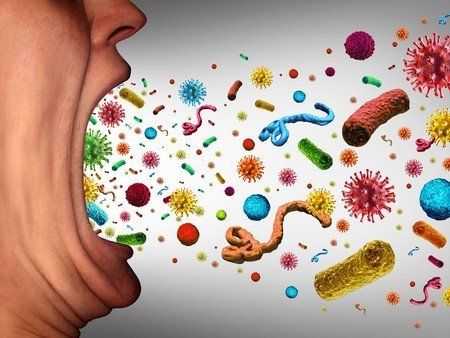Mouth Bacteria Linked with Colorectal Cancer
Colorectal cancer, which, unexpectedly, starts in the colon or rectum, ranges its five-year survival rate between 87 and 92 percent in the first stage, but this rate drops to around 12 percent in the fourth stage. In 2014, 139,992 United States residents received diagnoses for colorectal cancer, including 66,596 women and 73,396 men.
Of those patients, 51,651 succumbed to the disease, including 24,517 women and 27,134 men. With figures like these, colorectal cancer has been consistently listed as the second-highest cause of cancer-based fatalities in the U.S. as well as the second most occurring form of cancer worldwide.
This is a serious yet somehow less-known cancer, which is why the need for more research into it is paramount. On that note, research was published in the last year regarding colorectal cancer, and it was specifically about the cancer’s connection to a certain type of gut microbe, which also exists within the mouth and is linked to gum disease.
It’s unknown at this time whether this link is indirect or causal. This research, published in Cell Host & Microbe , shows how fusobacteria—human intestinal microbes—trigger bad responses in the immune system and stimulate cancer growth genes, thus generating colorectal tumors.
Dr. Yiping Han and his collaborators from Case Western Reserve University found that fusobacteria depend on a specific molecule, Fusobacterium adhesin A, to grab and then invade the cells from which colorectal cancer can grow.
This molecule then switches on the cancer growth genes, stimulating inflammatory responses within these cells and promoting the formation of a tumor. And this all comes from a microbe long associated with gum disease.
A study similar to Dr. Han’s found these gut microbes are prevalent within adenomas—benign tumors that could eventually become malignant. What this suggests is these microbes are a factor in tumor formation in its earliest stages of development.
“Fusobacteria may provide not only a new way to group or describe colon cancers but also, more importantly, a new perspective on how to target pathways to halt tumor grown and spread,” says Dr. Wendy Garrett, the study’s senior author who is also with the Dana-Farber Cancer Institute and the Harvard School of Public Health.
If you’re concerned that you may have colorectal cancer, some of the symptoms include the following:
·Changes to bowel habits, including constipation, diarrhea, or narrowed stool, that last longer than several days.
·The feeling of needing a bowel movement that isn’t relieved by one.
·Rectal bleeding with a very bright red shade.
·Bloody stool, which makes it appear dark.
·Abdominal pain or cramping.
·Fatigue and weakness.
·Unintentional weight loss.
These symptoms could be the result of another condition, such as hemorrhoids, irritable bowel syndrome, or infection, but if you do have any of these symptoms, it’s still crucial that you see a doctor immediately.
If it is time for you to get a checkup to check for conditions such as this, considering signing up for our New Hampshire discount dental plan that could save you as much as 20 percent off your next bill. For more information, please click here.
Copyright: lightwise
/ 123RF Stock Photo











